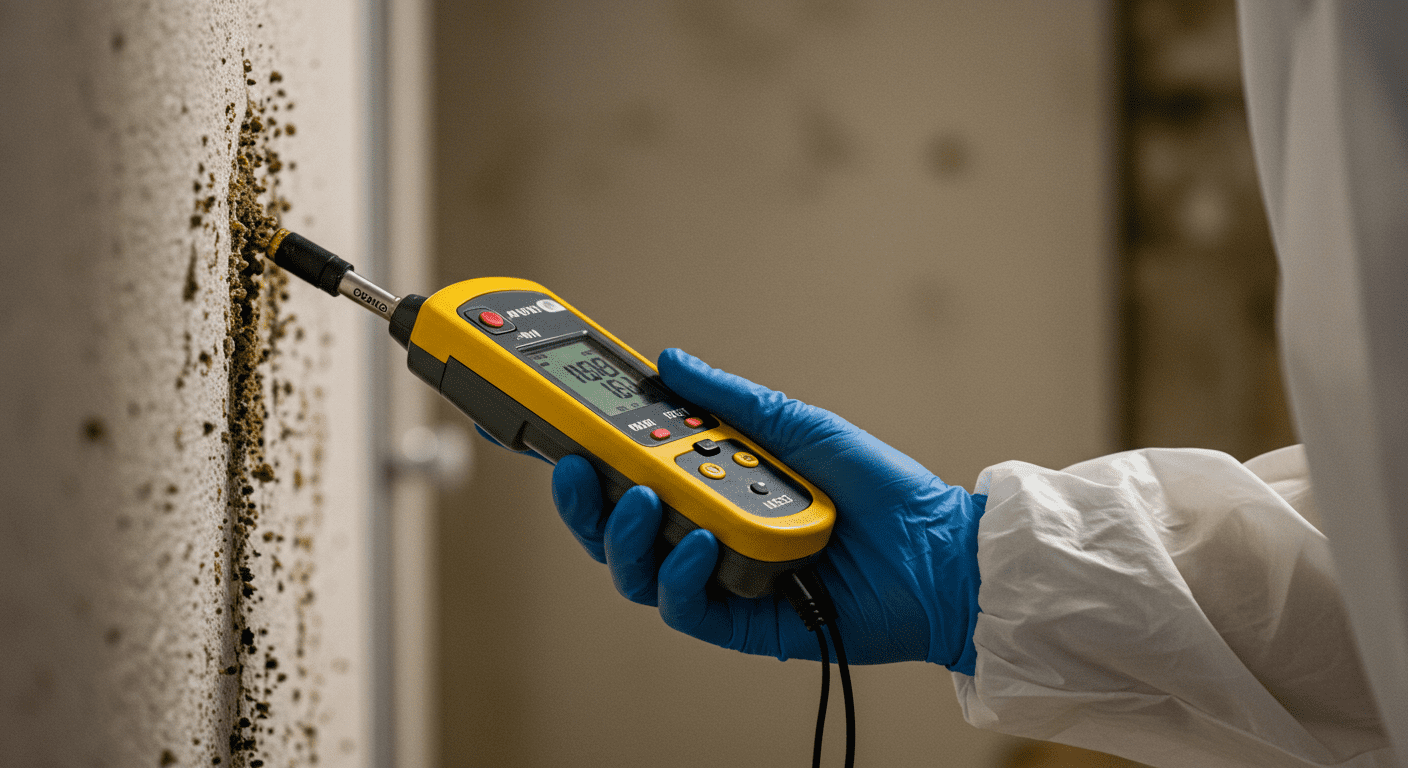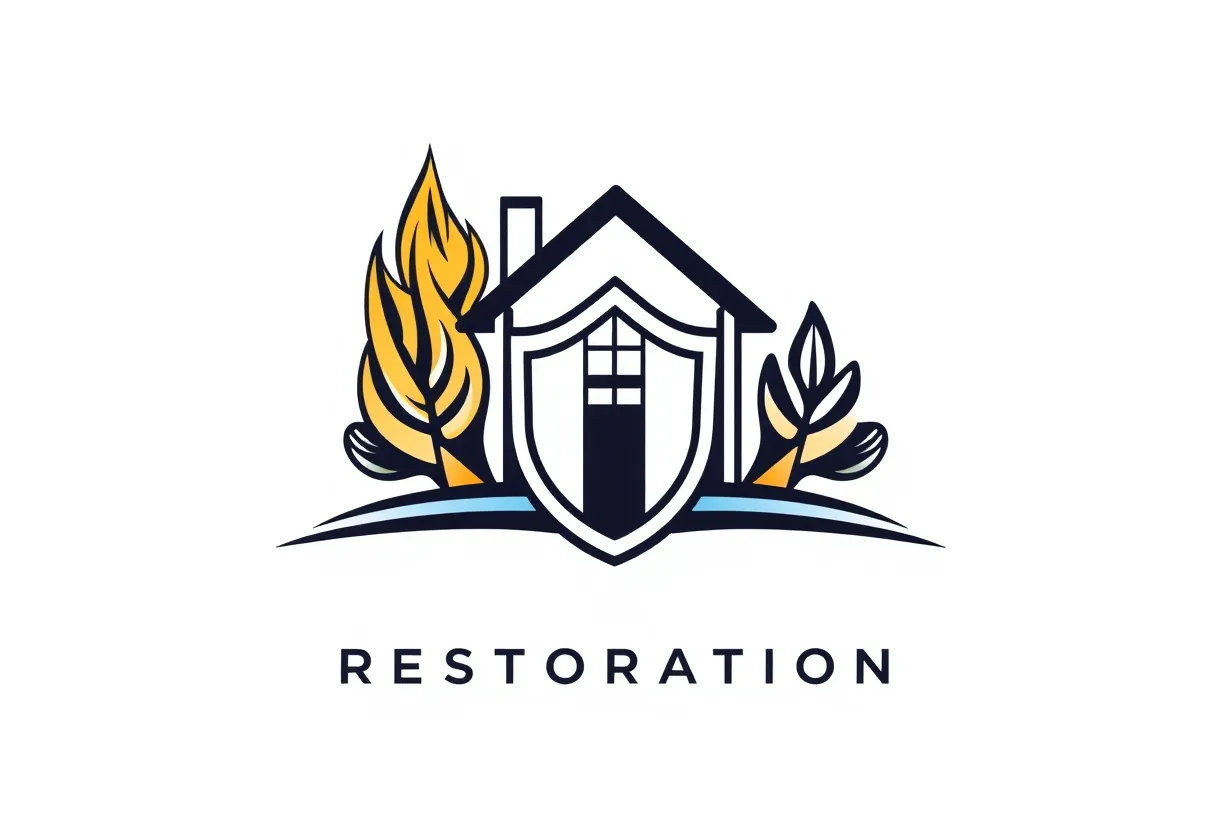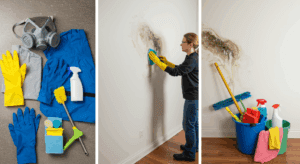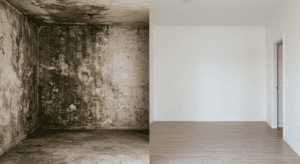Mould infestations are a common yet serious issue for homeowners in Newark, NJ. Left unchecked, mould can compromise your home’s structural integrity and pose significant health risks. This article explores the importance of mould house inspections, the inspection process, and actionable prevention tips to keep your home safe and healthy.
Understanding Mould and Its Risks
Health Implications of Mould Exposure
Mould exposure can lead to a variety of health issues, especially for individuals with allergies, asthma, or weakened immune systems. Common symptoms include respiratory problems, skin irritation, and even severe allergic reactions. Prolonged exposure to toxic mould, such as black mould, can result in chronic health conditions. For families in Newark, NJ, where humidity levels often fluctuate, regular mould inspections are crucial to maintaining a healthy living environment. For more information, visit the CDC on Mould Exposure.
Common Signs of Mould Infestation
Identifying mould early can save you from costly repairs and health complications. Common signs include a musty odor, visible mould patches, and water stains on walls or ceilings. Other indicators may include peeling paint, warped wood, and increased humidity levels in your home. If you notice any of these signs, it’s essential to schedule a professional mould inspection immediately. For more details, check out our Mould Testing Services.
The Importance of Professional Mould Inspections
Why Choose Certified Inspectors?
Professional mould inspectors bring expertise and specialized tools to accurately identify and assess mould issues. Certified inspectors in Newark, NJ, are trained to detect hidden mould in areas like basements, attics, and behind walls. Their comprehensive approach ensures no corner of your home is overlooked, providing you with peace of mind and a clear action plan for remediation.
The Inspection Process Explained
The mould inspection process typically begins with a visual assessment, followed by moisture and air quality testing. Inspectors use advanced tools like moisture meters and infrared cameras to detect hidden mould growth. Samples are often collected and sent to a lab for analysis to determine the type of mould present. This thorough process ensures accurate results and helps in devising an effective remediation strategy.

Mould Remediation vs. Mould Removal
Key Differences and Why They Matter
While the terms “mould remediation” and “mould removal” are often used interchangeably, they are not the same. Mould removal refers to physically eliminating mould from surfaces, whereas mould remediation addresses the root cause of the infestation. Remediation involves identifying and fixing moisture issues, cleaning affected areas, and preventing future growth. Opting for remediation ensures a long-term solution rather than a temporary fix.
Steps Involved in Effective Remediation
Effective mould remediation involves several steps, starting with containment to prevent spores from spreading. This is followed by cleaning and disinfecting affected areas, repairing water damage, and improving ventilation. Professional services in Newark, NJ, often include post-remediation testing to confirm the success of the process. Choosing a reliable remediation company ensures your home is mould-free and safe for your family. For more information, visit EPA Guidelines on Mould.
Preventing Mould Growth in Your Home
Tips for Maintaining Indoor Air Quality
Preventing mould starts with maintaining good indoor air quality. Use dehumidifiers to keep humidity levels below 60%, especially in basements and bathrooms. Ensure proper ventilation by using exhaust fans and opening windows when possible. Regularly clean and inspect areas prone to moisture, such as under sinks and around windows. These simple steps can significantly reduce the risk of mould growth in your home.
Importance of Regular Inspections and Maintenance
Regular mould inspections are a proactive way to protect your home and health. Scheduling annual inspections can help identify potential issues before they escalate. Additionally, addressing minor leaks and water damage promptly can prevent mould from taking hold. Investing in routine maintenance not only saves money in the long run but also ensures a safe and healthy living environment for your family. For more prevention tips, visit Indoor Air Quality Solutions.
Conclusion
Mould house inspections are an essential service for homeowners in Newark, NJ. From understanding the risks of mould exposure to implementing effective prevention strategies, taking proactive steps can safeguard your home and health. Whether you’re dealing with an existing infestation or looking to prevent future issues, professional inspections and remediation services are your best allies. Don’t wait until it’s too late—schedule a mould inspection today and ensure a safe, healthy home for your family.
For expert solutions, explore Top Mould Removal Companies Near You in Newark, NJ: Expert Solutions for a Mold-Free Home.




